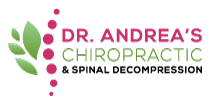
Functional fitness training combined with chiropractic care can play a significant role in supporting your health and wellbeing. These complementary practices work together to strengthen and realign your musculoskeletal system while helping you manage pain, reduce the risk of injury, and promote healing.
What is functional fitness training?
Functional fitness training prepares you for the things you do in everyday life, such as carrying a load of laundry or playing with your kids. These exercises safely condition your muscles by simulating movements you make every day—bending, reaching, twisting, pushing, pulling, squatting, and lunging. Over time, functional fitness can improve your strength and train your muscles to work together so you can more efficiently complete tasks you do at home and at work.
Training your muscles to work the way they do in everyday life prepares both your upper and lower body to move optimally in a wide range of situations. Strong muscles also increase core stability and reduce the risk of injury.
While functional fitness training is suitable for people of all ages and fitness levels, be sure to check with your doctor before starting any new exercise program.
Functional fitness exercises strengthen muscles to promote healing
Functional training isn’t just for athletes. This type of exercise can help anyone in any condition improve mobility, strength, and flexibility so you can move with greater ease and efficiency.
If you suffer an injury that causes pain or makes it difficult for you to perform activities, a chiropractor can tailor functional training to reactivate, retrain, and strengthen your muscles. Training can also create balance within your body and ensure that all aspects of your movements work properly.
By focusing on how your body moves, you will gain the benefit of increased ease and efficiency in everything you do. The overall goal is to improve your quality of life.
Integrate functional fitness into chiropractic care
Your chiropractor may use functional training to promote healing and help you recover from an injury faster. Exercise combined with chiropractic care can also address muscle imbalance and dysfunction to relieve long-term chronic pain.
Chiropractors who focus on taking a holistic approach to treating pain may perform soft-tissue procedures that relax stiff muscles and restore range of motion to joints throughout the body. Some may also offer spinal decompression. Adding functional fitness activities into your treatment plan can train your muscles to balance your weight correctly and reduce stress on your body.
Add functional fitness activities into your workout routine
The objective of functional fitness training is to strengthen your whole body so you can handle the daily tasks while minimizing the risk of injury. If you aren’t strong enough, it can be more difficult to accomplish simple movements that require your muscles to activate—whether you’re climbing stairs, bending over to pick something up, vacuuming the floor, or loading groceries into the trunk.
In addition to making your life a lot easier, functional training can help you perform activities better and move more effectively.
Take functional fitness to the next level with CrossFit
CrossFit is a high-intensity interval training program that combines cardio and bodybuilding with functional movements that replicate actions you perform in your day-to-day life.
The goal is to strengthen your muscles and improve overall conditioning by consistently varying workout styles while also focusing on sound nutrition. CrossFit can deliver life-changing results to people of all ages and fitness levels.
Explore the benefits of functional fitness training
Training your muscles to work the way they should prepare your body to perform well in a range of common situations. Functional fitness training replicates movements you do every day, often in a high-intensity environment, and offers a number of benefits:
-
Increase strength
Because of its full-body nature, functional training can make you a lot stronger. Increased strength promotes healing and helps you recover from injuries faster.
To build strength, integrate pull-ups, lunges, and squats into your workout routine. Lunges help prepare your body for activities like vacuuming and yard work, while squats train the muscles you use when you stand up from a seated position.
-
Improve motor function
By training your muscles and nervous system to work together, functional fitness helps you move easier. High-intensity functional training can also improve your coordination and motor function.
-
Achieve better conditioning and endurance
Functional fitness training uses your body weight and kettlebells, barbells, or dumbbells to boost your cardiovascular capacity and stamina. This type of exercise leaves you better equipped to engage in higher levels of physical activity without becoming fatigued.
-
Improve balance
In addition to making you stronger and keeping you agile, functional fitness trains your muscles and mind for activities that require balance and core stability. These exercises also help improve your coordination by encouraging you to use muscles in your upper and lower body at the same time.
-
Perform everyday activities with ease
By training your muscles to work together and simulating common movements you make at home or at work, functional fitness exercises prepare you to perform daily tasks. Training focuses on fundamental movement patterns that involve bending, squatting, pushing, pulling, and twisting your body.
By using numerous muscles and joints, functional exercises can make everyday activities easier, reduce your risk of injury, and keep you agile.
Improve your quality of life with functional fitness training
As an avid practitioner of CrossFit interval training, Dr. Andrea offers functional fitness training at her chiropractic and spinal decompression practice. By combining chiropractic care and functional fitness training, Dr. Andrea takes an integrative approach to treating pain and promoting healing. To find out if functional fitness training is right for you, contact Dr. Andrea today or call us at 918-364-2225.



